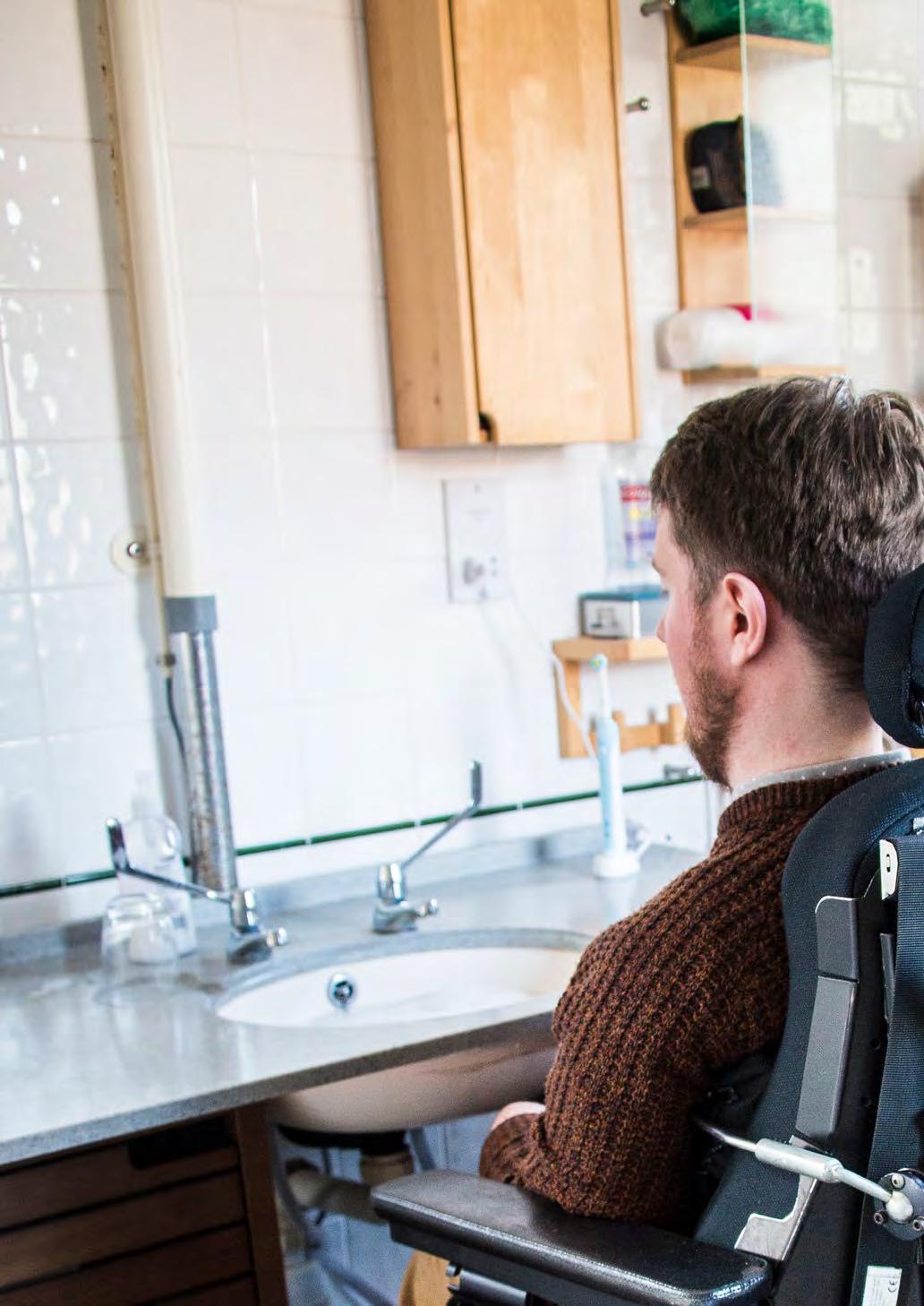
4 minute read
1. Introduction
In December 2016, the Equality and Human Rights Commission (‘the Commission’) launched a formal inquiry on housing for disabled people. The inquiry examined whether the availability of accessible and adaptable housing, and the support services associated with it, met disabled people’s rights to independent living.
Our inquiry covers England, Scotland and Wales. 1 Housing law and policy is largely
Advertisement
devolved in Scotland and Wales, but linked policy areas such as social security and funding for supported housing are reserved to the UK Government.
Britain’s record on accessible housing and independent living
The importance of housing is recognised in the United Nations Covenant on Economic, Social and Cultural Rights, which includes ‘the right of everyone to an adequate standard of living for himself and his family, including adequate housing’.
The right to independent living has also been central to this inquiry: it is enshrined in the UN Convention on the Rights of Persons with Disabilities (UNCRPD), which the UK Government is legally bound by.
Following its review of Britain’s disability rights record in August 2017, the UN Committee on the Rights of Persons with Disabilities highlighted concerns that the situation in Britain was deteriorating in terms of disabled people’s right to live independently and be included in the community (UNCRPD Article 19). It also emphasised that there were insufficient accessibility standards in the UK in relation to affordable housing (UNCRPD Article 9) (Committee on the Rights of Persons with Disabilities, 2017).
The UN Committee highlighted specific concerns ‘that austerity measures have hindered the advancement of accessibility’, and concerns regarding ‘the reduction in social protection schemes related to housing, household income and budgets for independent living’. It called for action to address these (UNCRPD, 2017). Reviews of other UN human rights mechanisms and processes have also called attention to problems with suitable housing and independent living for disabled people (OHCHR, 2014; ICESCR, 2016).
Our inquiry – terms of reference
Our inquiry was conducted under section 16 of the Equality Act 2010. The terms of reference for our inquiry placed disabled people’s experiences of housing at the centre of the work.
The inquiry explored the supply of accessible housing across all tenure types, allocation policies and practices, types of tenancy support, adaptations and planning and building regulations. Details of the terms of reference can be found in the appendix to this report.
Social care and welfare reform are important and interlinked policy areas that have an impact on housing. These issues have not been explored in detail here. Nevertheless, the implications of recent UK Government policy on the supply of supported housing were highlighted as a crucial issue for some disabled people, and so the inquiry considers this issue in Chapter 6. The inquiry did not look closely at residential care, but did consider evidence regarding the problems that disabled people encounter in moving from hospital and residential care – problems which can prevent disabled people from living independently in the community.
1 in 3
disabled people in private rented properties live in unsuitable accommodation
1 in 5
disabled people in social housing live in unsuitable accommodation
1 in 7
Methodology
The inquiry report draws on a wide range of evidence sources. Our evidence-gathering activities were designed to address gaps in the evidence base, to acquire up-to-date information, and to hear directly from practitioners and disabled people, with practical experience of issues relating to accessible housing.
We issued a ‘call for evidence,’ which gathered the views of:
• disabled people (419 responses)
• disabled people’s organisations (DPOs) (65 responses), and
• housing providers (87 responses).
We carried out a short online survey of occupational therapists, which gathered 98 responses. While it is often presented numerically, this data is not considered to be statistically significant and the percentages that are given simply refer to the proportion of respondents in the sample. We do not claim that these are statistically representative; however, they do offer a valuable insight into people’s views and experiences.
Our staff also engaged directly with stakeholders and organisations in the field of housing and disability face-to-face, over the phone and by email. In the case of a formal interview, the session was recorded and transcribed.
This inquiry report draws on published research, official statistics and policy analyses. Published sources are referenced and can be found in full in the bibliography.
We also commissioned two major research projects as part of this inquiry. The University of Stirling conducted a brief literature review and qualitative interviews with disabled people in around 50 households. The research provides in-depth insight into the lived experiences of disabled people, but is not statistically representative. IFF Research conducted a quantitative survey of local authorities regarding their ability to meet the housing needs of disabled people; eighty-three per cent of all local authorities in Britain responded, meaning that the findings are statistically representative.
The report comprises four main chapters which cover the supply of accessible housing, adaptations, allocations, advice and support and supported housing.










